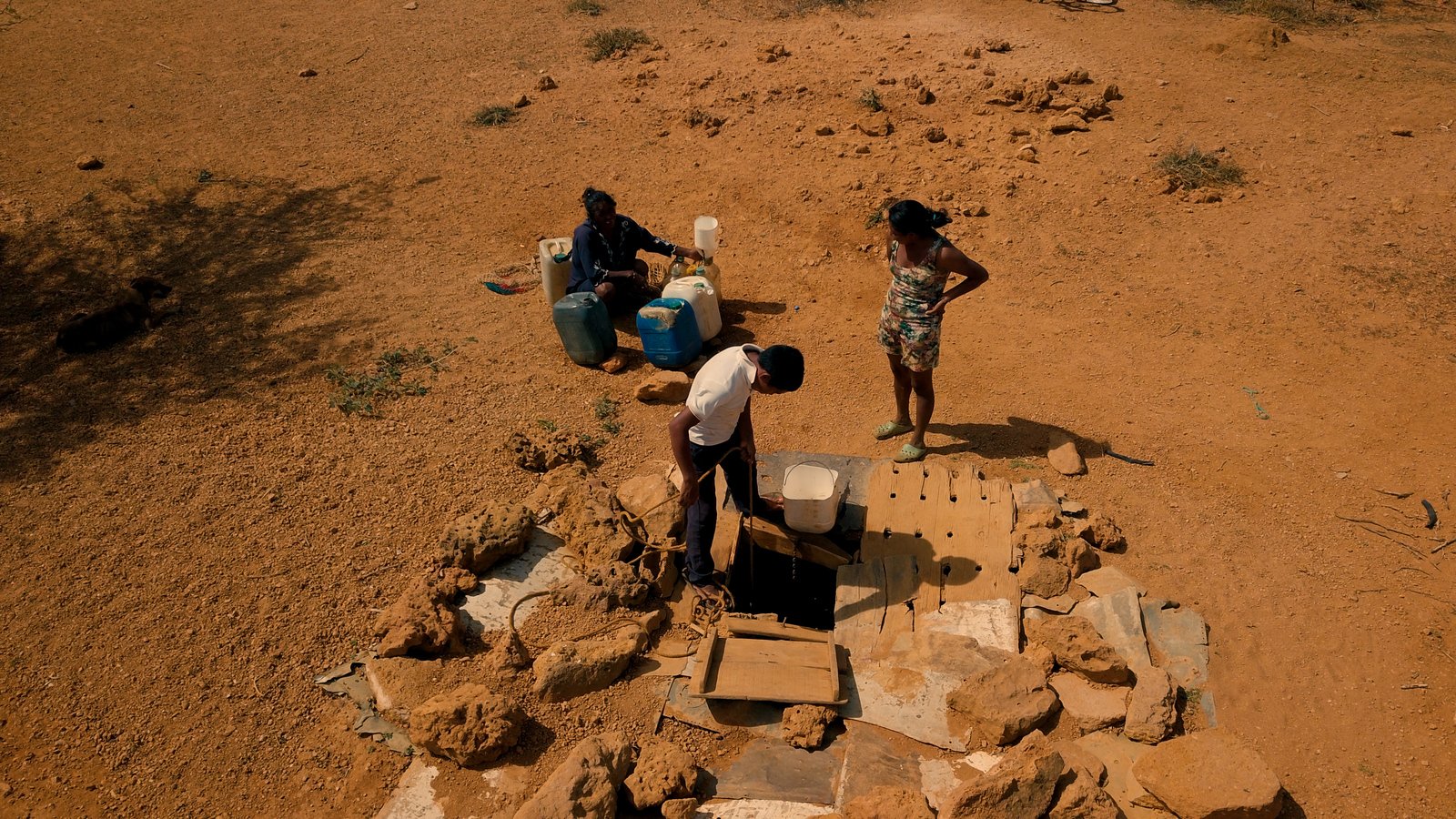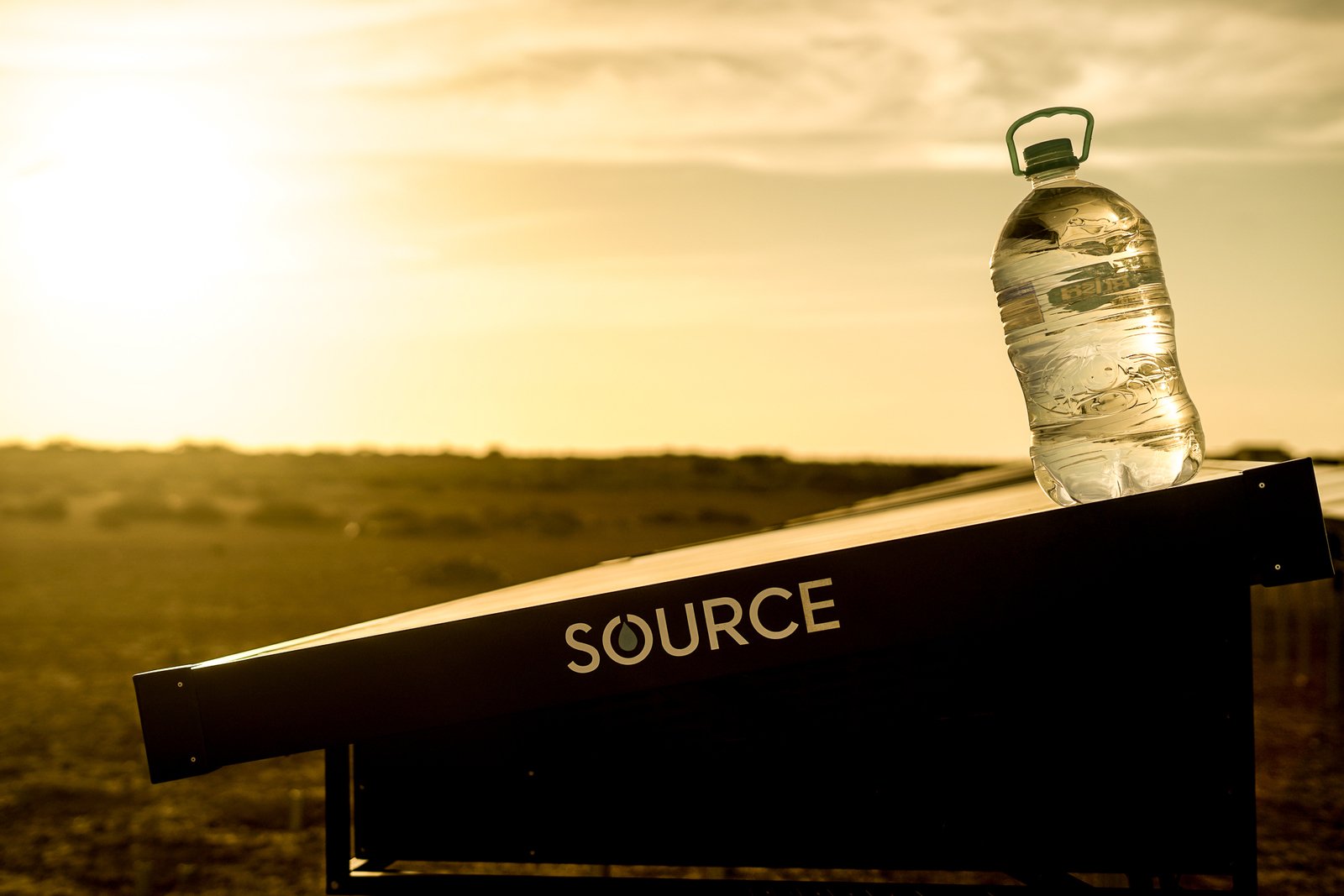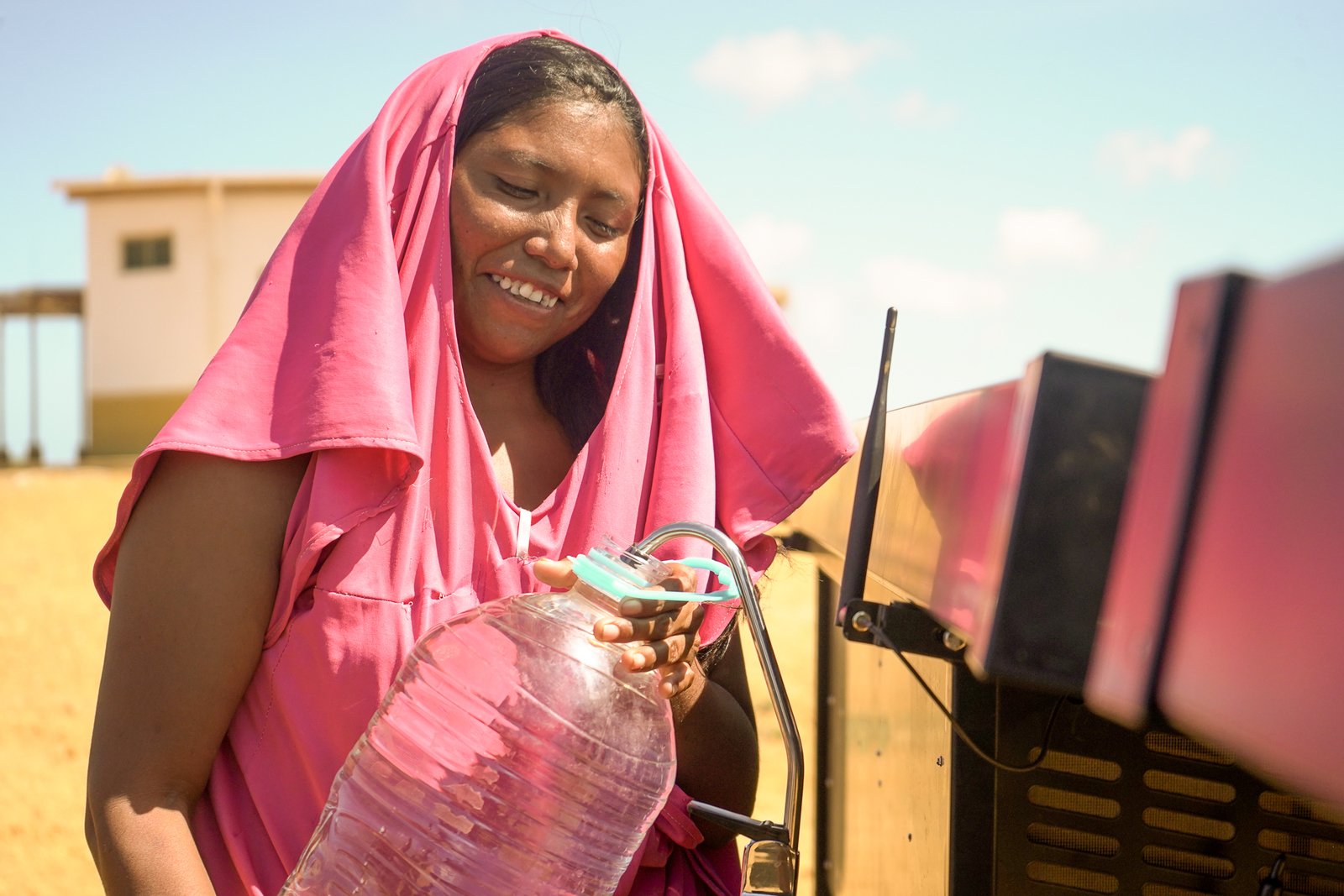In a remote part of Colombia, high-tech glass panels are helping residents of Bahia Hondita become water secure, thanks to a partnership between Zero Mass Water and Conservation International.
A set of 149 “hydropanels” that can supply 22,000 liters of fresh water each month were installed in the coastal community in December 2019. The panels use sunlight to draw water vapor out of the atmosphere, concentrate it, and then infuse it with minerals. In less than an hour, a single panel can fill up a glass of water.
It’s a remarkable feat of modern engineering — sustainable and scalable — that liberates the Indigenous Wayuu community from the burden of finding fresh water. Previously, just 4% of the residents in Bahia Hondita had access to fresh water.
“There was no source of water in the community in Bahia Hondita and they had to rely on walking several hours to collect poor quality, mainly brackish water,” María Claudia Díazgranados Cadelo, director of marine and community incentives programs at Conservation International, told Global Citizen.
Cody Friesen, CEO of Zero Mass Water, said that a number of other factors made Bahia Hondita a good setting for hydropanel installations.
While large parts of Colombia enjoy fresh piped-in water, Bahia Hondita is too remote to be reached by normal infrastructure projects. The area’s water sources are also being threatened by climate change as tropical storms intensify and sea levels continue to rise, which can pollute and degrade water sources.

“Precipitation in Guajira has declined as a result of climate change, further exacerbating the lack of water,” Cadelo said.
On top of that, a critical river that used to supply water to the area has been heavily disrupted by a dam, Friesen said.
The hydropanels bypass these challenges and can indefinitely supply the community with fresh water.
“The goal, of course, is to show the government and other stakeholders in the region that we can help them with their water security,” Friesen said.
Cadelo said that she expects disease rates and infant mortality to decline in the months ahead because of the newfound fresh water.

“Accessible, abundant, clean drinking water means improved livelihoods and health, and of course, more time — time and energy that the Wayuu can now use to focus on conservation and living sustainable, abundant lives,” Cadelo said in a press release.
Water insecurity is a growing problem around the world.
An estimated 1 in 4 people around the world currently face water shortages and up to 50% of the global population could face water shortages by 2050.
Declining water sources could upend global agriculture, disrupt health care systems, and trigger regional conflicts, according to the World Economic Forum.

Solutions like Zero Mass Water’s hydropanel installations can help water-stressed communities. Installations are already providing fresh water in 35 countries. Syrian refugee camps in Lebanon and Dubai, and communities in arid parts of Australia are now getting water from hydropanels.
“I think of it as our duty to make this the most efficient source of potable water in the world,” Friesen said.
“You can store food, air is abundant and free no matter where you are, but water is the tough one because it’s intrinsically wet, heavy, and hard to carry around,” she added. “It’s the stuff of life, but pathogens grow in it, it’s perishable, it dissolves good stuff and bad stuff.”